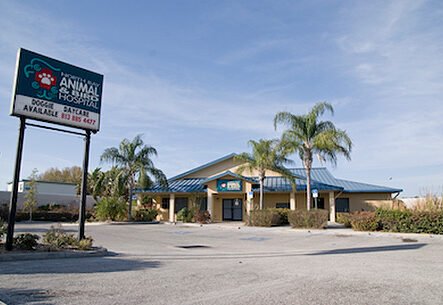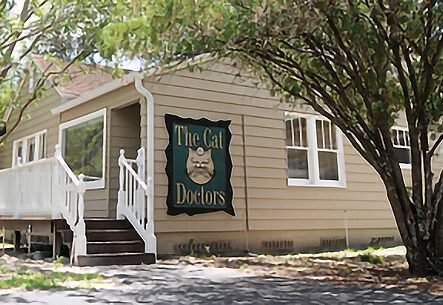Comprehensive guide to owning a rabbit

What to expect from your rabbit
Rabbits are gentle, quiet animals that make excellent pets. They have dynamic personalities and appreciate human interaction. Domestic rabbits are best suited to live in safe homes with adult supervision. Rabbits like to explore and chew, so it is important to guard your home (furniture, electrical cords, wood) against their inquisitive nibbling when they are allowed to roam around your house. It is important to provide a stimulating environment for rabbits, such as the availability of toys. Toys may be as simple as cardboard mailers, paper towel centers, safe wooden toys made for birds or PVC tubing. A rabbit should be handled carefully, especially when removing it from its cage. Always support its hindquarters when picking it up, as its powerful rear legs can cause serious spinal injuries if it kicks while being held.
Vital statistics
- Body length: 6-12 inches (15-30 cm)
- Body weight: 2-20 pounds (1-9 kg) (depends on breed)
- Sexual maturity: Male: 4-7 months (dwarf breeds mature at a younger age)
- Female: 4-9 months
- Average life span: 5 years (max 15)
Are rabbits tame?
The more time you spend with your rabbit, the more it will become tame, friendly and bonded to you. While it is usually gentle with its owner, a rabbit may kick, scratch or bite if it becomes anxious; therefore, play with young children must be supervised. Rabbits can be trained to use a litter-box.
Is your rabbit a male or female?
It is advised to take your rabbit to an exotic animal veterinarian to determine its gender because it is often difficult to properly sex a rabbit, especially a young one. It is a good idea to neuter or spay your rabbit before puberty (4-6 months of age) to guard against health problems involving the reproductive organs, especially in females.
What should you feed your rabbit?
Rabbits should be fed fresh commercial rabbit pellets (without additives) and hay. Rabbits younger than 6 months can have unlimited access to pellets and alfalfa hay. Adult rabbits should receive no more than 2-3 tbsp of pellets per 5 pounds (2 kg) body weight per day. Alfalfa hay is too rich for adults, but they may have unlimited access to timothy or grass hay. Breeding or lactating adults may eat alfalfa hay. Limited quantities (4 Tbls/5 lbs [2 kg] body weight) dark green leafy vegetables can be given as supplements. Vegetables such as iceberg lettuce and celery are not good snacks, as they are not particularly nutritious. Adding supplements, such as HEALx Sunshine Factor® may be beneficial. Fresh drinking water should be provided at all times in a sipper bottle.
Where should you house your rabbit?
You should confine your rabbit to a hutch, cage or bunny-proofed room when you are not at home. The larger the area, the better, as rabbits like to scamper about in bursts of energy. Yard and garden exercise should be strictly supervised. To house your rabbit outdoors, be sure it is sheltered from excessive sun and predators. Do not allow the ambient temperature around your rabbit’s hutch to exceed 90 F. If the hutch has a slatted or mesh bottom, provide at least a section of solid flooring.
The House Rabbit Society recommends organic litters made from alfalfa, oat, citrus or paper. Litters made from soft woods, such as pine or cedar, should be avoided. Rabbits appreciate a box for hiding and sleeping. You will want to clean your rabbit’s cage frequently (at least once a week), both for your rabbit’s health as well as to control urine odor.
If you have more than one rabbit, keep your males separated from each other and from females. Be aware that non-neutered males will fight with each other whether there are females around or not.
How to keep your rabbit healthy, happy and safe
- Take your rabbit to your veterinarian immediately after purchase and annually for examinations.
- Ask your veterinarian to evaluate your rabbit’s teeth so they won’t become overgrown.
- Administer medication to your rabbit only as directed by your veterinarian.
- Keep your rabbit’s toenails trimmed and its fur free of mats and feces.
- Have your female rabbit spayed at an early age to prevent uterine cancer.
- Prevent the formation of hairballs by brushing your rabbit frequently and by providing sufficient roughage in the diet via a good timothy hay.
- Check sipper bottle frequently as rabbits drink a lot of water.
Housing for your rabbit should:
- include a cage or box for hiding even if the rabbit is given free range in the home
- be cleaned every few days, including a change of bedding material to keep it dry
- be maintained in an ambient temperature between 55-90 F
- be located in an area with good ventilation
- include a tunnel for hiding and resting
- include items for chewing, such as untreated wood, cardboard, or safe wooden toys
- include suitable substrates, such as shredded paper (non-inked), recycled newspaper composite materials, straw or hay. Cedar chips should be avoided as they may be toxic.
It is important to prevent rabbits from accessing:
- electrical cords
- blankets and carpets that may be ingested
- leaded paint and wood varnish
- unsupervised dogs, cats and other pets
- unsupervised play with young children
- toxic houseplants
- pesticides or other lawn chemicals
- cedar shavings
- tobacco and cigarette smoke
- “gourmet” pellets that include peanuts and other additives
What your veterinarian looks for in a healthy rabbit
- Clean ears
- A wiggling, dry nose
- Proper alignment of teeth
- Dense, clean, unmatted fur
- Clean feet free of sores
- An alert and inquisitive disposition
Visit your veterinarian if you notice any of the following signs in your rabbit:
- Poor appetite
- Abnormal droppings (decreased production, diarrhea)
- Indications of pain (hunched posture, loud tooth grinding)
- Abnormal intestinal sounds
- Difficulty eating, slobbering
- Overgrown teeth
- Bald areas on fur
- Dandruff or flaky skin
- Lumps and bumps under the skin
- Matted fur around the nose, eyes or inside front paws
- Crusts or wax in the ears
- Blood on the mouth, feet or genitalia
- Noisy breathing, sneezing
- Sores on the bottom of the feet
- Listlessness
- Head tilt
- Swollen or tender abdomen
The single most important factor that causes disease conditions in rabbits is improper feeding. Visiting your exotic animal veterinarian for routine health checks and discussion of the appropriate diet will help prevent many diseases and support you in having a long, satisfying relationship with your rabbit.
Background Information
Rabbits belong to a group of animals called the lagomorphs, which includes both the domesticated and wild rabbits. They are not rodents. Free-ranging rabbits are abundant in Western Europe, North America, South America, Australia and New Zealand, where they live in underground burrows. Rabbits are not trapped in the wild for the pet trade because free-ranging rabbits do not adapt well to captivity. Rabbits may be purchased from pet shops or adopted from shelters nationwide. The House Rabbit Society can assist families in locating foster care facilities with adoptable single rabbits or bonded pairs. There are about 45 different breeds of rabbit. The most popular pet breeds are the New Zealand white, the angora, the Netherland dwarf, the Dutch, the lop (Holland, mini), and the mini rex. Rabbits are naturally coprophagous: they ingest the softer, sticky cecal droppings they produce approximately 4 hours after eating. By this process, they get maximal vitamins and nutrition from their food.
Courtesy of Zoological Education NetworkTampa, FL 33615 (View map)
Tampa, FL 33647 (View map)
Tampa, FL 33617 (View map)
Tampa, FL 33647 (View map)








